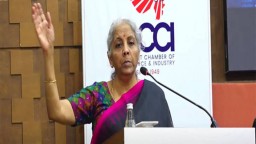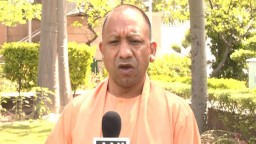Delhi HC asks govt, RBI to respond to Subramanian Swamy's PIL seeking probe on Yes Bank's stressed assets transfer

New Delhi: The Delhi High Court on Friday asked the government, the Reserve Bank of India (RBI), and the Securities Exchange Board of India (SEBI) to file responses to former Rajya Sabha MP Subramanian Swamy's PIL seeking direction to form a committee consisting of experts to investigate the transfer of Yes Bank's stressed assets to J.C. Flowers Asset Reconstruction Company.
A division bench of Chief Justice Satish Chandra Sharma and Justice Subramonium Prasad also sought a response of Yes Bank and J.C. Flowers Asset Reconstruction Company along with others respondents in the matter. Senior Advocate Rajshekhar Rao along with Advocate Satya Sabharwal appeared for petitioner Subramanium Swamy.
The plea also sought direction to the government, RBI, and SEBI to formulate proper and comprehensive guidelines in accordance with the recommendations of the committee in order to check any such future agreements/transactions and to regulate the arrangements entered into between Banks/NBFS or other financial institutions and Assets Reconstructions Companies.
The plea also highlights the growing rot prevalent in the private banking sector, which has been further accelerated by the perpetual decay of corporate governance and ethical standards prevailing in the private banking industry and asset reconstruction industry.
This is growing case of concern as there is apparent conflict of interest between functioning of banks & ARCs. The situation is further complicated, when motivated and malafide transactions between the two are allowed to stand as the regulator (RBI), fails to act and enforce its own guidelines causing significant loss of public monies, stated the plea.
"Non-Performing Assets (NPAs) are a growing concern for private sector banks in India. NPAs refer to loans that have become delinquent, and their rise can have serious implications for the financial stability of banks and the economy. Poor credit risk management practices and insufficient internal controls have contributed to the high levels of NPAs in private sector banks."
As a result, NPAs pose a significant challenge for the banking sector and the Indian economy, stated the plea.
ARCs were introduced in India through the SARFAESI Act of 2002 with the aim of relieving banks of the burden of resolving problem loans.
As specialized financial institutions, ARCs purchase NPAs from banks and other financial institutions to resolve them.
The RBI regulates the framework for ARCs in India and has issued circulars outlining restrictions on their acquisition of non-performing financial assets from sponsors and lenders.
However, ARCs can participate in auctions of such assets conducted transparently and at arm's length with market-determined prices, plea added.
Conflicts of interest can arise when ARCs engage in activities that benefit their executives or other stakeholders, but not their shareholders or depositors. This can undermine the credibility of ARCs and their ability to effectively resolve NPAs. Recognizing this, the union government has established its own ARC called National Asset Reconstruction Company Limited (NARCL). (ANI)

.jpg)
.png)
.png)
.jpg)
.jpg)
.jpg)
.jpg)
.png)
.jpg)
.jpg)
.jpg)
.jpg)








